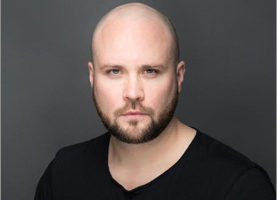In this important podcast, Nicola Beer, award-winning relationship psychology and transformation expert, discusses healing pathways to combat trauma, improve relationships, and improve our lives. Beer is a leading authority on save your marriage techniques that work.
Beer has dedicated her life to helping people repair, renew, and reinvigorate their relationships. For over ten years, Beer has helped women and men all over the world to live better lives by working on their relationships and dealing with past traumas. Beer’s empowered love program has helped so many people bring a higher level of positivity into their busy lives.
Beer provides an overview of her interesting background and journey toward a career in relationship psychology. Beer discusses some of the specific needs of her male and female clients, from separations and divorces, to deep emotional issues and traumas. And she talks about the ways that she helps couples through their difficulties. She talks about big issues such as guilt, communication, and more and provides information on the times within a relationship that can bring about problems, and how partners cope.
Beer is a prolific writer and has co-authored international best-sellers and is a sought-after guest speaker. She has been featured on various media outlets, such as ABC, CBS, NBC, Fox News, Wall Street Select, and HuffPost.
Richard Jacobs: Hello, this is Richard Jacobs with the future tech and future tech health podcast. I have Nicola beer. She’s a world-leading authority and had a savior marriage and maintain a close and fulfilling relationship. She’s an international bestselling author of four books. She’s been featured on ABC, CBS, NBC, Fox News Network, Huffington Post, and Wall Street Select, and she’s the founder of the award-winning empowered love program and affair recovery program and the marriage make-over online. That’s an audio program for individuals or couples. So, Nicole, it’s great to have you. How are you doing?
Nicola Beer: Yeah. Wonderful. Thank you. I’m really excited to be here. Thank you so much for having me as a guest.
Richard Jacobs: Yeah, no problem. So how did you get into the whole save your marriage arena? Hopefully, it wasn’t from a bad experience yourself.
Nicola Beer: Well, actually I started wanting to help people to get through divorce because my parents really suffered with divorce and me and my siblings did, not necessarily because of the divorce, it was more the way that they fell out. They argued, we were brought into it as children. So it was actually quite painful growing up. And so I decided that I wanted to really help the couple through divorce children through divorce. I did all of my qualifications and grief and loss and supporting people through divorce. And then I kept meeting couples that were saying to me that they didn’t actually want to be getting divorced, but that they were talking through their problems and that they couldn’t find a way forward or they’d gone to marriage counseling, traditional marriage counseling, where they just asked them to repeat all of their problems, drag everything up, and they were going round and round in circles and it made things worse. And the more times I kept meeting couples are saying that the marriage counseling had made it worse and I thought, okay, this is what I need to be doing rather than helping people through a divorce only. I really need to look at focus more on helping couples to stop divorce or individuals that want to sink in, frantically save their marriage, give them the tools and the skills to do that. So that actually then became my focus. So in a way or kind of fell into it. And I’ve really, really enjoy working in this area now it’s something which I really love helping. It’s something I feel is I needed.
Richard Jacobs: So what’s a typical situation? Who comes to you? The man or the woman? Is it both and like what are the typical backstories?
Nicola Beer: Yeah, so it’s completely mixed actually, but that tends to be trends in one way. So when the women come to me, normally they want to save the relationship and they want their husband also to join the program and we go through my online couples’ program, which has three main areas, focusing on the actions that create that love and connection actions that move a couple forward clearing the negativity and resentment and great communication. They tend to go through steps as a couple when most women contact me. Men tend to contact me when they want a separation or move out or want a divorce. And then this is when the men have this massive wake up call. I may say, Nicola, you have to help me save my marriage. My wife has been saying for me to change for a long time. I’ve just been ignoring it and now I’m trying to do everything I can to try and save it. And sometimes then they go into a sort of a desperate mode. They become too needy. They say things that cause more fools out and make their words get even further away from them. So I tend to work the men online more on how to save their relationship, how to start taking the right actions, how not to push them even further away if that makes sense.
Richard Jacobs: Well actually I’m sure it doesn’t make sense that the men that are unintentionally doing it when they want to get back together. So let’s delve into that. But starting from the male perspective, what happens when, so the wife says, I don’t want to be with you, I want a divorce. Whatever it is. How do the men react, as you said, do they get needy or do they try to like overwhelm the wife with love and attention all of a sudden then they push them away or like what happened?
Nicola Beer: Yeah, like the kind of biggest mistakes that they make and women do this as well. So it’s not always men. Sometimes it’s the other way around. But it’s like trying to guilt them and just saying like think of the children, how could you give up? How could you break your marriage Rouse and when you try to guilt someone into staying with you, that’s not a good energy for the relationship and it’s not going to make them be more attracted to you. Then sometimes there’s like you say, smothering that over communication, being available all the time saying that you can’t live without them, that you are nothing without them, sometimes this can be too much love letters that really attack themselves and say this isn’t all good energy to creating the attractiveness because really the energy to save the relationship is to have a lot of positivity to show them I’m going to have a great life and I would love you to still be with me and have that great life and I’m going to do everything I can to make you happy. If you allow me to show you this is the key thing that they should be focusing on as well as trying to get the husband or wife. If you find yourself in that position into giving you a bit more time to show that the changes that you’re making are consistent and to show them that you’ve really listened to what they’ve been saying over the years by taking action they’ve already been asking if that makes sense.
Richard Jacobs: That makes sense. Do you find that the reason for the strife is similar to the man’s point of view versus the woman’s point of view? Depending on which one wants the separation though, which one doesn’t want the separation?
Nicola Beer: Yeah, I think it’s always difficult for the person who doesn’t see it coming. They may realize that communication isn’t as great as it was. Perhaps the sex life wasn’t as great as it was, but one person normally has been thinking about it for a really, really long time. So when they make that decision, they’ve already gone through the stress, the grieving process, the loss of the relationship. And for the person, whether it’s the husband or the wife, this can actually come as a huge shock and that this could be overwhelming for somebody and a lot more difficult to deal with at that moment because they just didn’t see it coming. They knew things maybe weren’t great, but they didn’t ever expect the husband or wife to say, I love you but I’m not in love with you. Or I want a separation. I want a divorce. And so it can be really difficult.
Richard Jacobs: What are some of the common reasons why couples want to separate?
Nicola Beer: So the most common, the IC is affairs. So someone having a physical affair, an emotional affair, a cyber-affair, that’s like the most common. The second is an addiction. So somebody’s addicted to something when putting the addiction before the relationship for obvious reasons, that’s going to cause a lot of fallout. And then procrastination in a couple has a massive impact. So this is where one person feels like I’m doing everything for the relationship. This person is organized, they tend to take on more and more responsibility for the activities for the organization. And the other person is more laid back in their life and they don’t do the things that they fit, they’re going to do. And over time, one person just says, why? That’s it. I’ve tried and you’re not helping me. I may as well be on my own. And then they want to separate. So that’s another big reason. And then sometimes angry outburst. So, people who unfortunately the anger, it’s getting worse and worse because they’re not clearing their resentment, they’re not clearing the negative thoughts and sometimes they do things like battle ball or kicked the door and the person obviously gets scared, scared for themselves, scared for the children and they didn’t find this anger attractive and they want to leave.
Richard Jacobs: What other commonalities do you see? How do you see relationships after the two-year mark? Are there watershed moments in relationships like two, five, ten, twenty years or is it all over the place?
Nicola Beer: Really it’s all over the place. The first two years of children, It’s very high time for marriage problems because the couple obviously with children, but like as you’re an expert in sleep, the lack of sleep takes a massive toll on the relationship, the new financial pressures, the new responsibilities, adjusting to the different roles. Because if we think about it, the main reason that people get divorced, this misaligned expectations and so often when couples have children, one person can think, okay, as a father you should be acting like this, you should be doing this. As a mother you should be acting like this, she should be doing this. And these expectations often are not communicated at all. They are just expected that the other person should know what you think a mother or a father should do. So this is another reason why that is particularly difficult. And then also times when couples go through financial struggles, if a man or what goes through unemployment, naturally the person who is unemployed has their own depression around it, however mild or strong that might be, this can impact the relationship. And if this unemployment or financial stress continues for a long time, it can really take a toll on the relationship as well.
Richard Jacobs: Yeah, it makes sense. So when someone comes to you, do you have immediate remedial steps they can take or how fast do you need to spring into action? Then what do you typically do?
Nicola Beer: Sure, absolutely. I’ll definitely recommend taking action as soon as you can. On the key thing is to not get stuck and go over the problems again and again because it’s proven that just doesn’t work. And this is where couples get stuck. So you will have to ask yourself before you sit down and talk to your partner, what am I unhappy about? And what changes can we make, they make I make, to make things better? When I work with couples or in my audio programs, I literally say to them like, focus on what you need to be happy. And I cover a list of 20 needs that people can go through and choose their top seven of what they need to be happy. And then the couple needs to put that into action. So it could be, I need attention and need you to be present. So let’s have some rules around how much we’re on our phones. Let’s turn the TV off and actually have dinner at the table and connect with one another. We need more affection. There’s no time for us. How can we create more time? So all of these kinds of different things that we need, making sure that they’re happening on a daily and weekly basis. That’s really the first step because that really builds the connection. The second is clearing negativity and resentment because if we are still holding onto the past like you did this on my birthday two years ago, or you said this horrible thing to my family, then if we hold on to that, doesn’t matter how many loving date nights we go on, it’s still going to affect us and the thing about resentment is you don’t even need to say anything to anybody.
They can feel it in your energy, they can see it on your face. It creates tension in the house. So clearing resentment is essential and clearing resentment is an individual thing. So I take people through how to look at what they’re carrying from the past, how to just laugh at some of it and just say, okay, let that go. And then the things that you can’t let go because maybe that happening again and again. Then this is again where you need to look at what is the behavior that I need to change, my behavior, their behavior, our behavior so I can just finally let this thing go. Be free and enjoy the present moment. And then the last thing I cover, which is essential is great communication skills. When things aren’t going well because we can all communicate easily when we’re happy when we love when things are going the way that we want them to go. But when we feel angry, stress, it can come out wrong. The other person may see as an attack, then they attack us and it just snowballs into a communication disaster where couples don’t move forward. They just say in the bickering phase.
Richard Jacobs: I don’t know how you deal with this, but do couples try to use you as a pawn, to say, tell him this or tell her that or you’re on my side, you’re on this person’s side. Like it seems like it’d be difficult for you, like how do you not get embroiled in all this drama?
Nicola Beer: Sure. So first of all, I always, well it was couples individually first and then together. And I make very clear that I would never ever tell them, you need to stay together. You need to get divorced. Who am I to make a judgment on someone’s life? And it’s a life-changing decision whether you stay together or whether you end a relationship. Secondly, I say to them that I’m not there to play judge or jury. I’m here to help them express themselves more clearly, to look at the actions and solutions to changing behavior so that it actually makes a lasting difference.
Richard Jacobs: Hmm. Okay. Well, what happens if one of the people has gotten a lawyer or a solicitor or an attorney? Is that kind of kill your ability to help them or is that rare?
Nicola Beer: Well, actually I would say it’s quite common to have one of the partners at that point. Because often for one person, they’ve been thinking about how unhappy they’ve been for a long time. Sometimes they’ve kept that hidden. Sometimes they’ve shared that with that partner. It’s not true for them to calm their anxiety about what might happen in the future by going and seeing a lawyer by finding out their rights, by understanding what might happen. So actually that’s quite common and that doesn’t really make a difference. What really makes a difference is if someone’s not even willing to try. Often when couples come to me saying, okay, you didn’t have to commit to trying yet, but let’s look at some of the actions that can create that difference. Let’s look at what your husband or wife needs to be happy. Let’s look at what you need to be happy and then coming together on assessing. Can you give each other, will each of you need to be happy and if you count then one of you or both of you is not going to be happy and then that’s up to you.
Richard Jacobs: Yeah. Hmm. If someone has an attorney, do they get in the way of communication or is the couple still pretty free to communicate? Does it create an additional barrier? Like what do you do with that?
Nicola Beer: Well, it depends on how far along down the process they are and what kind of communication obviously they’re having with their attorney. As they are just have done their research into what might happen then that’s okay. If they decided that they want to make the marriage work, then, of course, you would hope that they would take a pause on any legal proceedings. It’s very difficult to work on a relationship to put in that commitment, that energy. If one person is still going through the whole action towards the divorce as the same time as doing the couples work, just when sometimes couples will say to me, can you help our relationship that’s been in effect, it’s that effect partner is still in the picture. Then again, it’s very difficult because daily both people in the marriage to be committed to doing this. So seeing if the steps can work and with someone else in the background not start looting it, that’s taking the distraction and the focus away from the marriage.
Richard Jacobs: What about if there are children involves, of an age where they can understand, you know, maybe four, six or eight, 10, and 12. Do you call the children to come into sessions or how does that work?
Nicola Beer: Oh, someone’s having children. Yes, absolutely. Over the age of eight. And really it’s just to support the child to understand and to speak to them about what they have been hearing, how they’re feeling. Ideally, I recommend to couples to keep children out of it as much as possible because we learn everything about relationships from our parents. That’s the first education we get about what relationships look like. So the less they know about the details, the better.
Richard Jacobs: Really. Okay. I mean, what if the environment at home is like super tense and the kids are 8, 10, 12 years old. I mean they sense it. Obviously they’re people, but what do you tell them? What do you not tell them? I would think they would live in fear of what’s going to happen, they don’t know if their parents are going to stay together. So it seems like they would have to be informed somehow.
Nicola Beer: Yes, absolutely. If they are informed, hopefully, the parents will be having the discussions and any arguments privately outside of the house or making sure that the children aren’t around in the cases where the children are listening or are aware then absolutely. And the first thing you would need to do for your children is to have a conversation with them and to calm their anxieties. So maybe in that case, if they have found out that you’ve been talking about divorce or if they have heard you argue time and time again to set them down and say to them that we’re trying to work things out just because we’re fooling out of, because we may not be in love with each other. That doesn’t change our love for you. Rest assured that you’re going to stay in this house or whatever. You can assure them that you’re going to stay in the city or going to stay at the same school that we’re trying our best, that we love you. If you have any concerns, please come and talk to us. Would you like to see a counselor at school? If you’re finding it difficult? These are the kinds of things that would need to be said because children are naturally more anxious anyway. And if there are things happening and no one’s communicating with them, of course, the anxiety is going to get a lot worse.
Richard Jacobs: Hmm. And I know it depends on the couple, but how long on average does it take to see whether there’ll be a resolution or not?
Nicola Beer: Well, change can happen quite quickly if both people are willing to put in the effort. If you’re sitting and not doing any loving actions and you’re just waiting for your feelings to change, not a lot of changes. And this is where individuals get stuck. They think, well, I’m not sure if I want to do any the actions or I’m not sure if I want to be in the relationship or not. And then they just wait for their feelings to change. They overanalyze. And this can take forever if you’re just not actually doing anything. You’re stuck with your thoughts going round and round and round. If you do some of the loving actions, like go out on a nice date nights, make more time for each other, communicate that all of these different kinds of things and it’s still not having an impact and you’ve given it a real strong go for let’s say six months or 12 months, then you may want to look at, okay, why isn’t it working? And then take it from there.
Richard Jacobs: So in addition to seeing you are there it sounds like you’ve created a bunch of resources for people. So what are they?
Nicola Beer: Sure. Absolutely. The first resource that a lot of people find me on is My Save Your Marriage podcast available on iTunes and Spotify and all the other podcast platforms. So there I have 150 episodes on all different topics and strengthening a relationship and how to overcome marriage problems. And then on my website, I have three audio programs for couples and these are for individuals as well. So, I have an affair recovery program. I have a couples program which is called the empowered love formula and marriage makers, both have 21 different audio lessons on how to communicate more effectively, revive intimacy, let go of that negativity and resentment that I mentioned and the actions to create more closeness. So those are sort of the resources that I have. And then obviously there’s working with me one to one, either one person in the relationship or a couple.
Richard Jacobs: Right. And what’s the best way to get in touch with the podcast? It’s called Save Your Marriage podcast?
Nicola Beer: Yeah. Save your marriage with Nicola Beer. And then my website as well nicolabeer.com has all the free resources that I have, a free eBook, seven secrets to saving your marriage. And once you download that, you’ll get a Forgive and let go meditation, which can be really powerful if you’re feeling stressed about things that have happened in the past. And you also get email support from me. So that’s a really great option. And you can get that on nicolabeer.com.
Richard Jacobs: Excellent. Okay. And all your resources are there. Well, Nicola, I don’t know how you do it. I don’t know if I’d want to do that but thank God, there are people like you that do this. So I appreciate you being on the podcast.
Nicola Beer: Thank you. Thanks so much.
Podcast: Play in new window | Download | Embed











